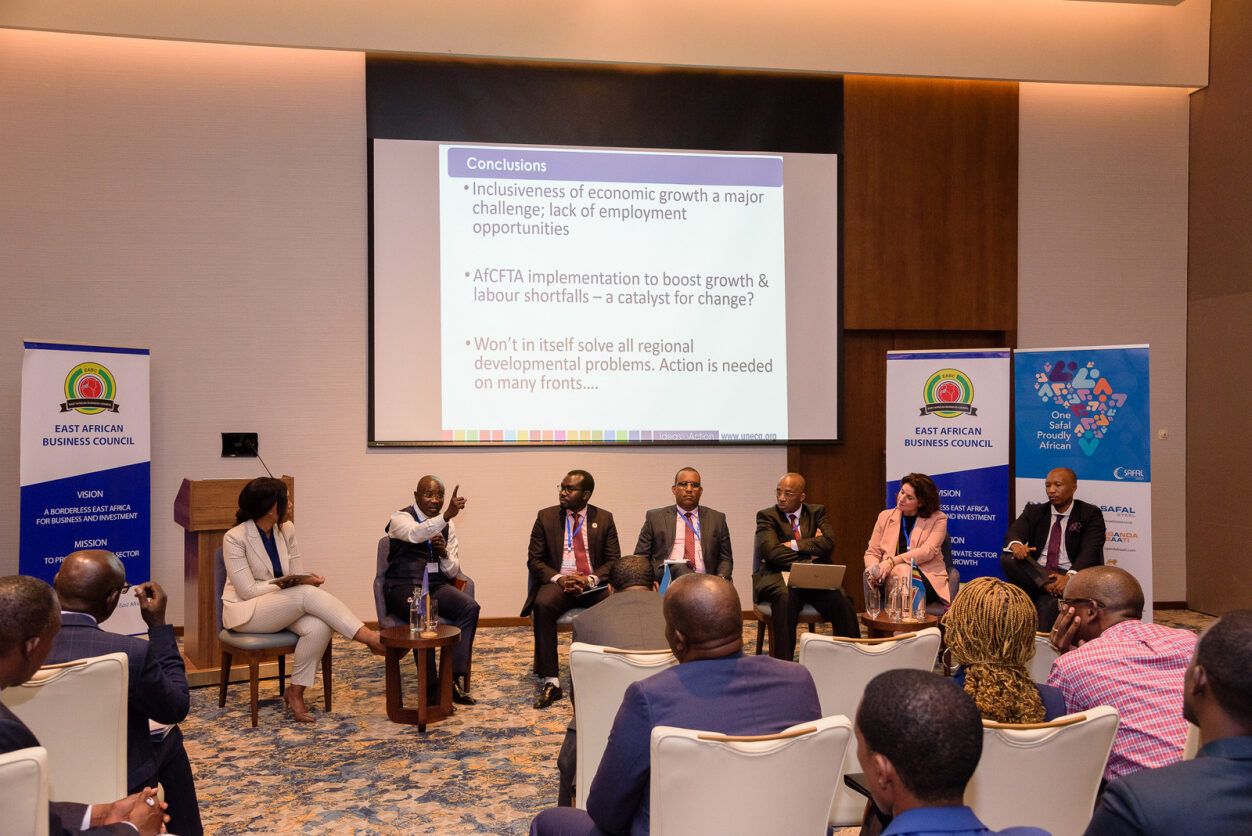To evaluate the business environment in the region, it is important to assess the impact of existing policies and initiatives, engage with key stakeholders, identify gaps, key challenges and barriers faced by companies operating in the Goods and Services sectors within the region and finally recommend various interventions to be undertaken to improve the ease of doing business. Against this background, the East African Business Council (EABC), with the support of GIZ via the 'Support to East African Integration' (SEAMPEC II) Programme, conducted a comprehensive study to assess the ease of doing business in the EAC region.
A survey of 200 companies from the Trade in Goods and Trade in Services sectors was conducted. The ease of doing business within the region was ranked on a scale from 1 - Very Easy to 5 - Very Hard.
The survey aimed to identify gaps in the ease of doing business. It identified key challenges faced by companies in the Trade in Goods and Trade in Services sectors. The study evaluated the effectiveness of existing policies and initiatives, providing insights for informed decisions. It also provided actionable recommendations for enhancing the ease of doing business in the EAC.
A total of 252 responses were gathered from businesses. 52% of the respondents were from Trade in Goods and 47% from Trade in Services sectors across all the EAC Partner States, offering valuable insights into the region's commercial landscape. The study focused on eight main indicators related to the EAC and AfCFTA integration processes. According to the study, the perceived ease of doing business within the EAC region was ranked as "Moderate" (Rank 3.09), with all eight indicators receiving similar moderate rankings.
Key Findings:
Indicator Rankings
The eight indicators below were ranked as follows:
- Paying taxes (Rank 3.21)
- Regulations for starting and operating a business (Rank 2.66)
- Government operations (Rank 3.41)
- Infrastructure development (Rank 2.76)
- Trading across borders (Rank 3.12)
- Making cross-border payments (Rank 2.73)
- Removal of trade restrictions (Rank 3.37)
- Trade finance (Rank 3.46)
Positive Progress
The study revealed that companies perceived positive progress in starting and operating a business and the ease of money remittance across the region. Businesses also cited various initiatives that have eased doing business in the region, including government reforms, business-friendly laws, political and economic stability, and government collaboration with the private sector through Public-Private Partnerships (PPPs).
Challenges
Businesses identified several challenges to the ease of doing business in the EAC, including trade finance issues like foreign currency availability, affordability of interest rates, and access to loans/credit. Government operations, especially those related to payments, securing tenders, and tax-related matters, were also highlighted as problematic. Trade restrictions, trading across borders, and high trading costs also pose significant challenges.
To enhance the ease of doing business in the region, the study recommends that EAC Partner States to:
- Enhance border efficiency to facilitate trade processes for goods and people.
- Expedite the implementation of EAC commitments, such as the Single Customs Territory (SCT), EAC Common External Tariff (CET), and Common Market commitments.
- Invest further in infrastructure, especially transport and communications networks.
- Address language barriers by translating official documents into French.
- Establish sector-specific Public-Private Dialogues (PPDs) to effectively address trade and investment constraints.
These findings provide a valuable resource for policymakers, businesses, and stakeholders in the EAC, guiding efforts to improve the business environment and foster economic growth in the region.
In addition, GIZ, via the SEAMPEC II programme and on behalf of the German Federal Ministry for Economic Cooperation and Development, is already cooperating with EAC in addressing some of the challenges raised by the study.
Find the Ease of doing Business Report here.
Find more information on SEAMPEC II here.
